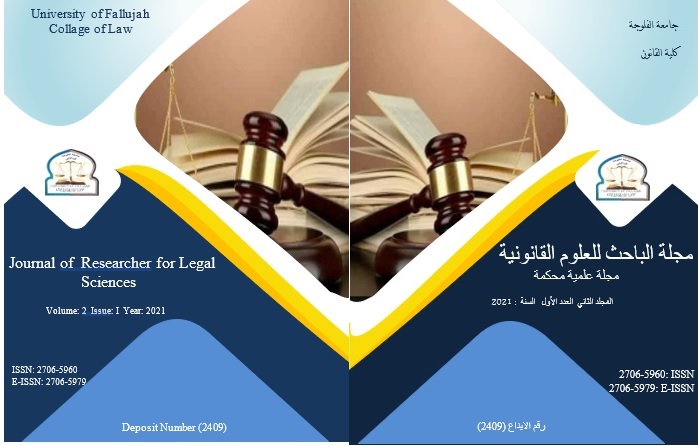Freedom to vote in Parliament a comparative study
Doi:https://doi.org/10.37940/JRLS.2021.2.1.2
Abstract
The compatibility between the will of the people and the will of the party is a complex matter in the constitutional systems. Some constitutions allowed for free voting, and others made the MP's freedom in vote is limited according to the will of the party either in all matters or in important matters. In addition, the degree of party discipline is influenced by the extent of party internal democracy and the type of electoral system. Iraq's Constitution of 2005 adopted the doctrine of freedom of voting indirectly, where the law does not strip the membership of the member who votes against his party wish. At work, proportional representation, applied before Parliamentary Elections Law Number 9 of 2020, weakens freedom to vote, especially after following the sectarian political quotas system. The new law, which adapts to the single non-transferable vote system, also does not prevent partisan influence. This law preserved the unity of the party list during the voting stage to form the government. Therefore, it is better to restrict the freedom of parliamentary vote in the main issues, so that there is respect for the substantive aspect in the choice of the MP.






